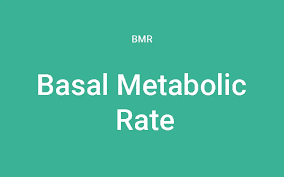Embarking on a weight gain journey can be a daunting task, especially when it comes to setting realistic goals and determining the right calorie intake to achieve them. Fortunately, tool like the weight gain goal calculator (calorie intake calculator to gain weight) can simplify the process and help you create a tailored plan for reaching your target weight.
You should consume 0 calories to achieve weight goal.
Your Weight Goal Requires:
Target Date:
Calories Needed to Maintain Current Weight: Kcal/day
Calories Burn / Day: Kcal/day
Time to Achieve Goal: Days
Daily Weight Gain:
Weekly Weight Gain:
Your Goal Current Weight:
Other Healthy Measurement:
BMR: Kcal/day
BMI: Kg/m2
IBW:
Health Status:
Your Weight Gain Table:
| Increment from total calories | Needed Calories/Day | Target Dates for Goal Weight |
|---|
[ez-toc]
Risks associated with being underweight
In a society where the focus is often on weight loss and dieting, the risks associated with being underweight can be easily overlooked. Maintaining a healthy body weight is crucial for overall well-being, and being underweight carries its own set of dangers. In this article, we will delve into the potential risks of being underweight and offer solutions for achieving a healthier body mass index (BMI).
- Weakened immune system
One of the most significant risks of being underweight is a weakened immune system. This can make the body more susceptible to infections and illnesses, and recovering from sickness may take longer. Ensuring a well-balanced diet, rich in vitamins and minerals, is essential to support a strong immune system.
- Osteoporosis and bone fractures
Low body weight can lead to reduced bone density, increasing the risk of osteoporosis and bone fractures. Consuming calcium-rich foods, engaging in weight-bearing exercises, and getting adequate vitamin D from sunlight or supplements can help strengthen bones and prevent fractures.
- Fertility issues
Being underweight can negatively impact fertility in both men and women. In women, it can lead to irregular menstrual cycles, hormonal imbalances, and even infertility. In men, low body weight can result in reduced sperm count and motility. Maintaining a healthy BMI can help improve fertility and increase the chances of conception.
- Malnutrition
Underweight individuals are at an increased risk of malnutrition, which can cause a range of health problems. Symptoms of malnutrition include fatigue, dizziness, and anemia. To prevent malnutrition, it is crucial to consume a balanced diet, rich in nutrients such as proteins, healthy fats, vitamins, and minerals.
- Growth and developmental issues in children
Children who are underweight may experience delayed growth and developmental milestones. Ensuring proper nutrition and a balanced diet can help support healthy growth and development in children.
- Chronic fatigue
Low body weight can cause chronic fatigue, making it difficult to perform daily tasks and maintain an active lifestyle. To combat fatigue, consume nutrient-dense foods that provide sustained energy, such as complex carbohydrates, proteins, and healthy fats.
- Mental health issues
Being underweight can contribute to mental health issues, such as depression and anxiety. Maintaining a healthy BMI and ensuring proper nutrition can help support mental well-being and overall quality of life.
Being underweight poses several health risks that should not be overlooked. It is essential to address these risks by maintaining a balanced diet, rich in essential nutrients, and adopting a healthy lifestyle. If you or someone you know is struggling with being underweight, consult with a healthcare professional for personalized advice and support. Achieving a healthy body weight is crucial for overall well-being and can help prevent the risks associated with being underweight.
weight gain goal calculator or the calorie intake calculator to gain weight can be used to know it.Use calculators to know it.
How to gain weight?
Gaining weight might not be a common concern for many, but for those struggling to put on pounds, it can be a challenging endeavor. The key to healthy weight gain lies in a balanced approach, focusing on nutrient-dense foods and regular exercise. In this article, we will explore various tips and strategies to help you gain weight in a healthy and sustainable manner.
- Consume more calories than you burn
The fundamental principle of weight gain is to consume more calories than your body burns daily. Track your daily caloric intake and gradually increase it by consuming nutrient-dense, calorie-rich foods. Aim for an additional 300-500 calories per day to gain weight at a healthy and steady pace.
- Choose the right foods
Emphasize nutrient-dense, calorie-rich foods in your diet. Opt for whole grains, lean proteins, healthy fats, and a variety of fruits and vegetables. Some great options include:
- Whole-grain bread, pasta, and cereals
- Nuts and seeds
- Avocado and olive oil
- Dairy products, such as milk, cheese, and yogurt
- Lean meats, poultry, and fish
- Legumes, such as lentils, chickpeas, and beans
- Starchy vegetables, such as potatoes and sweet potatoes
- Eat more frequently
Instead of three large meals a day, try eating five to six smaller meals or snacks throughout the day. This will help you consume more calories without feeling overly full or bloated. Focus on incorporating a mix of protein, carbohydrates, and healthy fats in each meal or snack.
- Embrace strength training
Strength training is crucial for healthy weight gain, as it helps build muscle mass and improves overall body composition. Engage in weight-bearing exercises, such as squats, lunges, deadlifts, bench presses, and push-ups, at least 3-4 times per week. As you progress, gradually increase the weight and intensity of your workouts to continually challenge your muscles.
- Prioritize protein
Protein is essential for muscle growth and repair. Aim to consume 1.2 to 1.5 grams of protein per kilogram of body weight daily. Include protein-rich foods, such as lean meats, poultry, fish, dairy products, legumes, and nuts, in your meals and snacks.
- Don’t forget about healthy fats
Healthy fats, such as those found in nuts, seeds, avocados, and olive oil, are calorie-dense and can help you gain weight without negatively impacting your health. Incorporate these healthy fats into your diet to boost your caloric intake and support overall well-being.
- Stay hydrated
While it’s essential to consume more calories, don’t forget the importance of staying hydrated. Drink plenty of water throughout the day to support digestion, nutrient absorption, and overall health.
- Get adequate rest
Adequate sleep is crucial for muscle recovery and growth. Aim for at least 7-8 hours of sleep per night to support your weight gain goals and overall well-being.
Gaining weight in a healthy and sustainable manner is achievable with the right approach. By consuming nutrient-dense, calorie-rich foods, engaging in regular strength training, and prioritizing protein and healthy fats, you can gradually increase your weight and improve your body composition. Remember, consistency is key – stick to your weight gain plan and be patient with your progress. If you’re unsure about your approach or need additional guidance, consult with a registered dietitian or a fitness professional for personalized advice and support.
How many calories do I need to gain weight?
For those looking to gain weight, understanding how many calories to consume daily is crucial. The right caloric intake can help you achieve your weight gain goals in a healthy and sustainable manner. In this article, we will explain how to calculate the number of calories you need to consume to gain weight, considering factors such as age, gender, activity level, and more.
Determine your Basal Metabolic Rate (BMR)
Your BMR is the number of calories your body needs to maintain basic physiological functions, such as breathing and cell production, while at rest. Several factors influence your BMR, including age, gender, height, and weight. To estimate your BMR, use the Mifflin-St Jeor equation:
For men: BMR = (10 × weight in kg) + (6.25 × height in cm) – (5 × age in years) + 5 For women: BMR = (10 × weight in kg) + (6.25 × height in cm) – (5 × age in years) – 161
Calculate your Total Daily Energy Expenditure (TDEE)
Your TDEE is the total number of calories you burn daily, including your BMR and the calories burned through physical activity. To calculate your TDEE, multiply your BMR by an activity factor that best represents your lifestyle:
- Sedentary (little to no exercise): BMR × 1.2
- Lightly active (light exercise or sports 1-3 days a week): BMR × 1.375
- Moderately active (moderate exercise or sports 3-5 days a week): BMR × 1.55
- Very active (hard exercise or sports 6-7 days a week): BMR × 1.725
- Super active (very hard exercise, physical job, or training twice a day): BMR × 1.9
- Add extra calories for weight gain
To gain weight, you need to consume more calories than your TDEE. A safe and steady weight gain rate is around 0.5-1 pound (0.23-0.45 kg) per week. Since 1 pound equals approximately 3,500 calories, you can achieve this by adding an extra 250-500 calories per day to your TDEE. Adjust this number based on your personal goals and progress.
Monitor and adjust your caloric intake
Keep track of your daily caloric intake and monitor your weight gain progress. If you’re not gaining weight as desired, increase your calorie intake further. Conversely, if you’re gaining weight too quickly or experiencing an increase in body fat, reduce your calorie intake slightly. Regularly reassessing and adjusting your calorie intake will ensure you stay on track toward your weight gain goals.
Focus on nutrient-dense foods
While increasing your calorie intake is essential for weight gain, it’s crucial to choose nutrient-dense, calorie-rich foods that support overall health. Opt for whole grains, lean proteins, healthy fats, and a variety of fruits and vegetables to ensure you’re meeting your nutritional needs while gaining weight.
Calculating the number of calories you need to gain weight requires understanding your BMR, TDEE, and the importance of consuming additional calories daily. By closely monitoring your caloric intake and focusing on .
nutrient-dense foods, you can achieve your weight gain goals in a healthy and sustainable manner. Keep in mind that everyone
Foods to gain weight fast ?
Gaining weight can be a challenge for some individuals, especially when aiming to do so quickly and healthily. The key to rapid, healthy weight gain lies in consuming nutrient-dense, calorie-rich foods that support overall wellness and muscle growth. In this article, we will explore the top foods that can help you gain weight fast while promoting optimal health.
- Whole-grain bread and pasta
Whole-grain bread and pasta are excellent sources of complex carbohydrates, which provide sustained energy and help increase calorie intake. Opt for whole-wheat, multigrain, or rye bread, and choose whole-wheat or legume-based pasta for added protein.
- Nuts and seeds
Nuts and seeds are calorie-dense, protein-rich, and packed with healthy fats. Snack on almonds, walnuts, cashews, chia seeds, or flaxseeds, or incorporate nut butter into your meals and snacks for a calorie boost.
- Avocado
Avocado is a fantastic source of healthy fats and calories, making it an ideal food for weight gain. Add avocado slices to your sandwiches, salads, or smoothies, or use avocado oil for cooking.
- Dairy products
Dairy products, such as milk, cheese, and yogurt, are high in protein, calcium, and calories. Incorporate full-fat dairy options into your diet, or opt for lactose-free or plant-based alternatives if you have dietary restrictions.
- Lean meats, poultry, and fish
Protein is essential for muscle growth and repair. Consuming lean meats, poultry, and fish can help increase your protein and calorie intake while promoting healthy weight gain. Opt for chicken, turkey, lean beef, salmon, or tuna for protein-packed meal options.
- Legumes
Legumes, such as lentils, chickpeas, and beans, are rich in protein, fiber, and complex carbohydrates, making them a valuable addition to a weight gain diet. Incorporate legumes into soups, salads, or stews, or enjoy them as a side dish.
- Starchy vegetables
Starchy vegetables, such as potatoes and sweet potatoes, are high in complex carbohydrates and calories. Roast, bake, or mash these vegetables and pair them with protein and healthy fats for a calorie-dense, balanced meal.
- Dried fruits
Dried fruits, like raisins, dates, and apricots, are calorie-dense and packed with natural sugars and essential nutrients. Snack on dried fruits or add them to yogurt, oatmeal, or homemade granola for an energy-boosting, calorie-rich treat.
- Smoothies and shakes
Smoothies and shakes can be a convenient and delicious way to increase your calorie intake. Combine fruits, vegetables, yogurt, milk, or plant-based milk alternatives, nut butter, and protein powder for a nutrient-dense, calorie-rich beverage.
- Dark chocolate
Dark chocolate is a calorie-dense treat that also boasts antioxidants and heart-healthy benefits. Opt for chocolate with at least 70% cocoa content and enjoy in moderation as part of a balanced diet.
Gaining weight fast requires a focus on nutrient-dense, calorie-rich foods that support overall health and muscle growth. By incorporating the foods listed above into your daily diet, you can effectively and healthily increase your calorie intake and achieve your weight gain goals. Remember to pair these foods with regular strength training exercises to promote muscle growth and maintain a balanced body composition
Will Activities like sports etc. slow down weight gain process ?
For those looking to gain weight, balancing sports and other physical activities with calorie consumption can be challenging. While exercise is essential for overall health and well-being, it can also impact the weight gain process. In this article, we will explore how sports and physical activities can slow down weight gain and provide tips for maintaining a healthy balance between exercise and caloric intake.
- Understanding the calorie equation
The fundamental principle of weight gain is consuming more calories than your body burns. Engaging in sports and physical activities increases your calorie expenditure, which can make it more challenging to achieve a caloric surplus. However, this doesn’t mean you should avoid exercise altogether. Instead, it’s crucial to find the right balance between calorie consumption and physical activity to promote healthy weight gain.
- Choosing the right type of exercise
While cardio-focused sports and activities, such as running or swimming, can burn a significant number of calories and slow down weight gain, strength training exercises can support muscle growth and improve overall body composition. Incorporate weight-bearing exercises, such as squats, deadlifts, and bench presses, into your fitness routine to build muscle mass and promote healthy weight gain.
- Adjusting your calorie intake
If you participate in sports or physical activities regularly, it’s essential to adjust your calorie intake accordingly to maintain a caloric surplus. Monitor your daily calorie expenditure and increase your intake to account for the extra calories burned through exercise. Aim for an additional 250-500 calories per day to support steady and healthy weight gain.
- Prioritizing nutrient-dense foods
Fueling your body with nutrient-dense, calorie-rich foods is crucial for supporting both your sports performance and weight gain goals. Focus on whole grains, lean proteins, healthy fats, and a variety of fruits and vegetables to ensure you’re meeting your nutritional needs and providing your body with the energy it requires for physical activity.
- Timing your meals and snacks
Proper meal and snack timing can help you balance sports and weight gain. Consume a balanced meal or snack 1-2 hours before engaging in physical activity to provide your body with the energy it needs. Additionally, consuming a protein-rich snack or meal within 30 minutes of completing your exercise can support muscle recovery and growth.
- Staying hydrated
Staying hydrated is essential for both sports performance and overall health. Ensure you’re drinking enough water throughout the day, especially before, during, and after physical activity, to prevent dehydration and support optimal body function.
While sports and physical activities can potentially slow down the weight gain process, it’s essential to find a healthy balance between exercise and calorie intake. By choosing the right types of exercise, adjusting your calorie intake, prioritizing nutrient-dense foods, and timing your meals and snacks appropriately, you can successfully engage in sports while achieving your weight gain goals. Consult with a registered dietitian, personal trainer, or healthcare professional for personalized guidance and support in balancing sports and weight gain.
Macros Ratios For Weight Gain
When it comes to gaining weight, understanding the optimal balance of macronutrients – proteins, carbohydrates, and fats – is essential. By adjusting your macro ratios to support healthy weight gain, you can achieve your goals more efficiently and sustainably. In this article, we will explore the ideal macro ratios for weight gain and provide tips for balancing your intake of proteins, carbohydrates, and fats.
Protein: The building block for muscle growth
Protein plays a crucial role in muscle growth, repair, and recovery. For healthy weight gain, aim to consume approximately 15-25% of your total daily calorie intake from protein. This translates to about 1.2 to 1.5 grams of protein per kilogram of body weight daily. Focus on consuming high-quality protein sources, such as lean meats, poultry, fish, dairy products, legumes, and nuts.
Carbohydrates: Fuel for energy and recovery
Carbohydrates are the body’s primary source of energy and are essential for fueling workouts and promoting recovery. To support weight gain, carbohydrates should make up approximately 45-65% of your total daily calorie intake. Choose complex carbohydrates, such as whole grains, fruits, vegetables, and legumes, to provide sustained energy and ensure you’re meeting your daily fiber needs.
Fats: Essential for hormone regulation and overall health
Healthy fats play a vital role in hormone regulation, nutrient absorption, and overall health. For optimal weight gain, fats should account for approximately 20-35% of your total daily calorie intake. Prioritize healthy fats, such as those found in avocados, nuts, seeds, and olive oil, to support overall well-being and provide a calorie-dense source of energy.
Adjusting macro ratios based on individual needs
It’s essential to note that the ideal macro ratios for weight gain can vary depending on factors such as age, gender, activity level, and personal goals. Monitor your progress and adjust your macro ratios accordingly to ensure you’re meeting your weight gain goals while supporting overall health.
Tracking your macros
To ensure you’re consuming the optimal macro ratios for weight gain, consider tracking your daily intake using a food diary or a nutrition tracking app. This will help you gain a better understanding of your eating habits and allow you to make any necessary adjustments to achieve your desired macro balance.
Balancing your macro ratios is crucial for healthy and sustainable weight gain. By focusing on consuming the right balance of proteins, carbohydrates, and fats, you can support muscle growth, recovery, and overall well-being while working toward your weight gain goals. Remember that individual needs can vary, and it’s essential to adjust your macro ratios based on your unique circumstances and progress. Consult with a registered dietitian or healthcare professional for personalized guidance and support in determining the ideal macro ratios for your weight gain journey.

Achieve Your Weight Gain Goals with the Weight Gain Goal Calculator
How the Weight Gain Goal Calculator Works
The Weight Gain Goal Calculator is user-friendly and provides a structured approach to your weight gain journey. Here’s how it works:
Input Your Information: Start by entering your current weight, height, age, gender, and activity level. This information helps the calculator determine your baseline calorie needs.
Set Your Weight Gain Goal: Specify your weight gain goal by indicating how many pounds or kilograms you’d like to gain and the desired timeframe.
Calculate: Click the calculate button, and the calculator will provide you with the daily calorie intake required to achieve your weight gain goal.
Nutrient Balance: The calculator may also provide a breakdown of your daily protein, carbohydrate, and fat intake to help you achieve your goals while maintaining a balanced diet.
Benefits of Using the Weight Gain Goal Calculator
Precision: The calculator provides a precise daily calorie target tailored to your unique circumstances and goals.
Structured Planning: It helps you plan your meals and dietary choices to ensure you meet your calorie and nutrient needs.
Progress Tracking: Regularly using the calculator allows you to track your progress and make necessary adjustments to stay on course.
Motivation: Seeing steady progress toward your weight gain goal can be highly motivating and reinforce your commitment to the journey.
FAQ on Weight Gain and Weight Gain Goal Calculator
How many calories should I eat to gain weight?
To gain weight, you need to consume more calories than your body burns. A safe and steady weight gain rate is around 0.5-1 pound (0.23-0.45 kg) per week. Aim to consume an additional 250-500 calories per day above your Total Daily Energy Expenditure (TDEE) to support healthy weight gain. Adjust your calorie intake based on your personal goals, activity level, and progress.
What are the best foods to eat for weight gain?
Focus on nutrient-dense, calorie-rich foods to support healthy weight gain. Some of the best foods for weight gain include whole-grain bread and pasta, nuts and seeds, avocado, dairy products, lean meats, poultry, fish, legumes, starchy vegetables, dried fruits, and smoothies or shakes.
Can exercise slow down my weight gain progress?
Physical activity increases your calorie expenditure, which can make it more challenging to achieve a caloric surplus. However, this doesn’t mean you should avoid exercise altogether. Instead, find the right balance between calorie consumption and physical activity to promote healthy weight gain. Incorporate strength training exercises into your fitness routine to build muscle mass and improve overall body composition.
What are the ideal macro ratios for weight gain?
The ideal macro ratios for weight gain are approximately 15-25% protein, 45-65% carbohydrates, and 20-35% fats. These ratios can vary depending on individual factors such as age, gender, activity level, and personal goals. Monitor your progress and adjust your macro ratios accordingly to ensure you’re meeting your weight gain goals while supporting overall health.
Can supplements help me gain weight?
Supplements, such as protein powders, weight gainers, and creatine, can be helpful for some individuals in achieving their weight gain goals. However, it’s essential to prioritize a balanced diet rich in whole foods before considering supplementation. Consult with a registered dietitian or healthcare professional before introducing any supplements into your weight gain plan.
How long does it take to see results from a weight gain plan?
The time it takes to see results from a weight gain plan can vary depending on individual factors, such as age, genetics, and consistency in following the plan. With a well-balanced diet and regular strength training, most people can expect to see noticeable results within 4-12 weeks. Remember that weight gain is a gradual process, and it’s essential to be patient and consistent in your efforts.
What information do I need to input into the Weight Gain Goal Calculator?
Typically, you will need to provide your current weight, height, age, gender, activity level, desired weight gain in pounds or kilograms, and the timeframe within which you want to achieve your goal.
How does the calculator determine my daily calorie intake for weight gain?
The calculator uses your baseline calorie needs (calculated based on your information) and factors in your weight gain goal and timeframe. It estimates the additional daily calories required to achieve your weight gain objective.
Is the Weight Gain Goal Calculator suitable for everyone?
The Weight Gain Goal Calculator is suitable for individuals looking to gain weight for various reasons, including muscle building, recovery, or overall health. However, it’s essential to use it responsibly and consult with a healthcare provider or dietitian, especially if you have underlying medical conditions.
Can I use the calculator if I have dietary restrictions or specific dietary preferences?
Yes, many Weight Gain Goal Calculators allow you to specify dietary preferences or restrictions. You can often customize your nutrient goals to align with your dietary choices, such as vegetarian or gluten-free diets.
How often should I revisit and update my weight gain goals with the calculator?
You should revisit and update your weight gain goals periodically, especially if your circumstances change or if you’ve achieved significant milestones. This ensures that your plan remains aligned with your evolving objectives.
Can I adjust my weight gain goal if my progress is slower or faster than expected?
Yes, you can adjust your weight gain goal based on your actual progress. If you find that you are gaining weight too quickly or not as expected, you can modify your goals to ensure a healthy and sustainable rate of weight gain.
Is it necessary to consult a healthcare provider or dietitian when using the Weight Gain Goal Calculator?
While using the calculator can be helpful, it’s advisable to consult a healthcare provider or registered dietitian when setting weight gain goals, especially if you have specific health concerns, dietary restrictions, or medical conditions. They can provide personalized guidance and monitor your progress.
What are some key tips for effectively using the Weight Gain Goal Calculator?
To use the Weight Gain Goal Calculator effectively, input accurate information, set realistic goals, prioritize nutrient-dense foods, engage in strength training, and seek professional guidance if needed. Patience and consistency are crucial in your weight gain journey.





